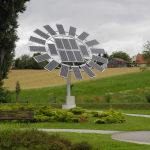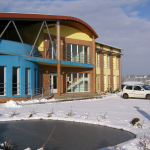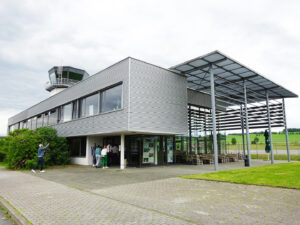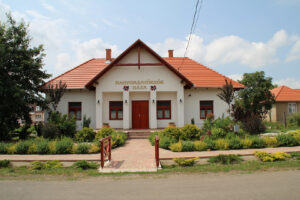
Nagypáli, Zala County, Hungary
The municipality Nagypáli with its some 550 inhabitants is located on medium height in the West of Lake Balaton and north of the central village Zalaegerszeg, which is administrative center of the comitatus Zala. Before the political change, Nagypáli was an agriculturally oriented village that continuously lost inhabitants to nearby cities due to its decrease in attractiveness.
In 1996, Nagypáli became an autonomous municipality in the framework of a structural reform, which resulted in a motivational boost for both communal politicians and inhabitants to model the village’s future. Numerous clubs and associations were founded and in the framework of a SWAT-Analysis, the strengths and weaknesses of the village were analysed. A village development plan with the name “Green Path” was developed in 1997, that included targeted short- and long-term goals. By the means of targeted measures, the negative trend within Nagypáli should be turned around. The membership in the Leader-Region and in the so called Runerer Network (small rural communities for energetic neutrality) helped with the implementation of the programme.
In a first step. the basic infrastructure establishments were renewed and created. A central project within the development plan was the creation of a new settlement area, in order to win particularly young families. Within 20 years, the population was doubled. Another step is to focus on the inner development with a focus on densification and revitalisation.
Strengthening of the community in the village is achieved by intense club work and also the purchase of commonly used tools, such as an innovative fruit press machine that can be used by the whole community.
Central goal of the village development plan is the revitalisation of economy and through some successful measures an economic upswing was achieved. The municipality first constructed an industrial park in which 72 establishments have settled. Additionally, the agriculture was optimised, which focuses on corn, wheat, but also Japanese energy willow trees and emerald trees that will be used in the biomass heat plant that is currently under construction. Also important are wine and fruit farming which is also of importance for tourism. A focus is put on the ecological advantages of the region and guests are offered a special nature experience. A guest-house was constructed, further attractions like a rose garden are under construction.
Both ecological and economical measure is the intense activity around the field of energy. Aside from products used to reduce energy consumption, a focus is put on renewable energy. Solar panels as well as photovoltaik systems are used to produce energy and heat, a solar park was constructed that allows for private investments. The town hall is heated by a biosolar system and a biomass heat plant is under construction, a solar power plant is being considered. The energy projects are innovative and ambitious.
The municipality Nagypáli proves impressively that small villages too can find their place in this Europe of Regions though creativity, commitment, a sense of community and solidarity.
Evaluated: 2016









